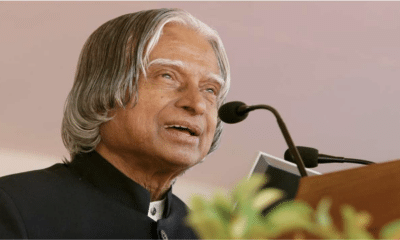Culture
Significance of International Day of Yoga
Over the past two decades, yoga has become part of affluent western societies, drawing housewives and hipsters, the millennials, Generation X, body culture and corporate culture into a multibillion-dollar synergy. The West views Indian yoga as an ancient, unchanging tradition based on revelations received by the Vedic sagas, who seated in the lotus pose!
Yoga practice comprises a regimen of postures or asanas, sometimes held for long periods of time, sometimes executed in rapid sequence, often together with techniques of breath control or pranayama. This International Day of Yoga let’s see how yoga has evolved into a “healthy and wealthy enterprise.
Yoga developed in the Indus Valley Civilization (3300-1900 BCE) and pre-Vedic Eastern states of India, the Vedic period (1500-500 BCE), and the sramana movement. Between 200 BCE and 500 CE, schools of Hinduism, Buddhism and Jainism were coming together and a unified philosophical system of yoga began to emerge.
This year yoga holds more significance in our everyday lives and well-being because of COVID-19 pandemic’s impact on physical and mental health. COVID-19 has exacerbated psychological suffering and mental health problems, including depression and anxiety, as pandemic-related restrictions continue in various forms in many countries.
The United Nations highlights that the message of yoga in promoting both the physical and mental well-being of humanity has never been more relevant. A growing trend of people around the world, are embracing yoga to stay healthy and rejuvenated and to fight social isolation and depression has been witnessed during the pandemic. It is also playing a significant role in the psycho-social care and rehabilitation of COVID-19 patients in quarantine and isolation.
As such, the 2021 International Day of Yoga focuses on “Yoga for well-being”, how the practice of yoga can promote the holistic health of every individual. Moreover, the World Health Organization mentions yoga as a means to improve health in its global action plan on physical activity 2018-2030 – more active people for a healthier world.
Also Read: World Music Day: 8 underrated gems from Coke Studio that should be on your playlist
It should be noted that this special day was proposed by India and endorsed by a record 175-member states. The proposal was first introduced by Prime Minister Narendra Modi in his address during the opening of the 69th session of the General Assembly. He had said yoga is an invaluable gift from India’s ancient tradition. “Yoga embodies unity of mind and body, thought and action, a holistic approach that is valuable to our health and well-being. It is not just about exercise, it is a way to discover the sense of oneness with yourself, the world and the nature.”
There are many benefits of yoga, helps in weight loss, helps in attaining inner peace, improves relationships, increases energy, improves intuition, improves immunity and detoxifies the body.











































Pingback: Tokyo 2020 to allow 50% cap on spectators at venues amid COVID-19 pandemic | The Plunge Daily